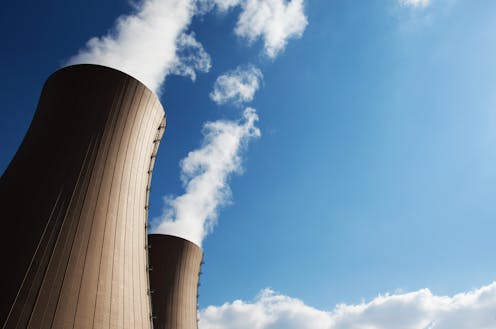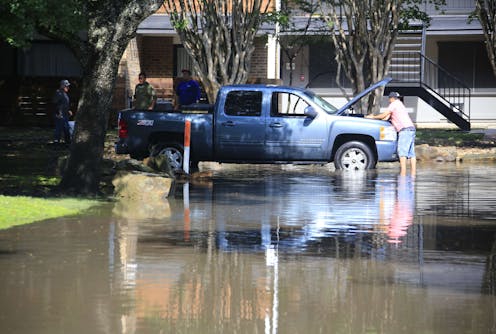This week, as heads of State, Ministers of Environment and other representatives from 175 countries gather in Ottawa, Canada for the Plastics Treaty negotiations, calls for a treaty that reflects the realities of the full plastics life cycle grow stronger. To bring about a truly effective and just legally binding plastics treaty that tackles one of the world’s most pressing environmental problems, organisations, movements and affected communities globally are leading by example while calling for the Treaty’s scope to extend to the whole life cycle of all plastics and associated pollution.
From the air we breathe, to the food we eat, oceans, soil, waterways, forests and the like are all increasingly contaminated by the rising tide of plastic pollution. Meanwhile, local communities continue to feel the devastating impacts at every stage of the plastics life cycle, from extraction and production to consumption and disposal.
Plastics, being derived largely from fossil fuels, are intrinsically tied to the interests of the fossil fuel industry, whose influence will need to be confronted. Farther along the life cycle of plastics is the export of plastic waste from rich countries with high levels of plastic consumption to countries in the Global South. Any meaningful solution to the plastics crisis, therefore, will need to simultaneously confront corporate power and address existing plastic pollution while bringing about the end of waste colonialism. The Plastics Treaty needs to reflect this reality.
These are the stories of just some of the Friends of the Earth groups who demonstrate what it really means to tackle the full life cycle of plastics.
Cutting plastics at the source
In the U.S. state of Louisiana exists a 137-km stretch of land known as ‘Cancer Alley’ with over 200 industrial facilities where companies like Formosa Plastics are looking to expand production, even amidst the ongoing plastic and climate crisis. These expansions are being seen across the country, cutting through what are often low wealth communities and communities of color that are already overburdened with air pollution and experiencing higher levels of particulate matter and carcinogenic toxic chemicals.
 St. James protest with FoE US against Formosa Plastics, Credit: Friends of the Earth U.S.
St. James protest with FoE US against Formosa Plastics, Credit: Friends of the Earth U.S.Forming powerful, diverse alliances, these communities are joining together in resistance against big polluters like Formosa Plastics. Alongside and in solidarity with them, Friends of the Earth United States is campaigning to phase down petrochemical production in the U.S. by stopping any new or expanded facilities. In their most recent attempts to cut plastics off at the source, FoE U.S. has been especially focused on cutting off the financing to these companies by targeting big banks, pension funds and investors.
“Plastics are a climate and human health issue at every step of the life cycle and need to be stopped at the source. It’s crucial that a global Plastics Treaty include limits to production.”
Paloma HenriquesFriends of the Earth U.S.
Building a movement to address plastic pollution
Even as we tackle production, however, there still remains the very real presence and impact of plastics that are already polluting communities all over the world. These communities are hit not only by the plastic waste produced in their own countries but by the waste resulting from the global plastics waste trade. Countries like Canada and the United States who consume a large share of plastic leave the resulting waste to be dealt with by countries in the Global South. Addressing waste is therefore a fundamental piece of the puzzle that has to consider not only the overconsumption of plastic and single-use products but the essential role played by those working in the waste industry.
In El Salvador, CESTA/FoE El Salvador is addressing the entire plastics life cycle by shifting attitudes and behaviour around plastics, promoting a culture of waste reduction and elimination while holding plastics corporations accountable. At the same time, CESTA works to generate public opinion in the Salvadoran population about the environmental and social dangers caused by the incineration of plastic waste and other harmful disposal practices upheld by corporate interests.
 Plastics brand audit with CESTA / FoE El Salvador, Credit: CESTA / Friends of the Earth El Salvador
Plastics brand audit with CESTA / FoE El Salvador, Credit: CESTA / Friends of the Earth El SalvadorBy generating public opinion, through educational campaigns, legal proposals and advocacy with municipal governments and grassroots recyclers, CESTA has influenced the reduction of plastic waste in various communities, helping to establish practices like refusing single-use plastics and shifting away from disposable plastics, among others.
“We’ve been able to make visible and influence the problem of plastic waste in society; among the people, across sectors and communities, there’s more and more interest in solving the plastics crisis.”
Laura MejíaCESTA / Friends of the Earth El Salvador
Challenging corporate capture of plastic regulation
In Canada, following the major win that is a national ban on certain single-use plastics, the plastic industry has taken the government to court in an attempt to delay and stall momentum. FoE Canada is pushing back against efforts by the fossil fuel industry to ensure their continued production. The group is of course well aware of the immense challenge and threat that corporate power presents.
“The involvement of corporations in the INC-4 negotiations is extremely worrisome. We need to peel away the industry influence on this.”
Beatrice OlivastriFriends of the Earth Canada
Corporate power continues to run rampant as evidenced by the increasing number of corporate lobbyists present at previous Treaty negotiations. In light of this, FoE Canada points to previous successful measures taken by Canada to limit corporate influence in these international spaces. Most recently, the creation of Canada’s Food Guide, which provides dietary guidelines, excluded the influence of the dairy industry (among others). Olivastri rightfully points out that a precedent has been set and that it is entirely necessary and possible to deny a seat at the table to transnational corporations that have a vested interest in limiting the scope of the Plastics Treaty to one that doesn’t acknowledge their role and impact.
 Friends of the Earth Canada cleaning up plastic waste, Credit: Friends of the Earth Canada
Friends of the Earth Canada cleaning up plastic waste, Credit: Friends of the Earth CanadaThe crucial role of waste pickers
Following the 2001 economic crisis in Argentina and amidst the increasing presence of material waste brought on largely by the overconsumption and discarding of waste by the middle and upper classes, the popular sectors have created their own informal and unrecognized work, based on waste collection and recycling. An integral role in any community, these workers advocate for and have achieved significant wins in reducing consumption, promoting recycling and improving their precarious working conditions. Tierra Nativa/FoE Argentina is actively engaging with these workers to continue taking these strides toward reducing plastic waste and ensuring labor rights are secured and respected.
Giuliana Alderete, Tierra Nativa/FoE Argentina emphasises the critical role waste workers play in tackling the plastics crisis, stating “A co-management between the State and these workers of the popular economy is essential to reducing plastic waste in the Global South. The workers know the complex socio-environmental problem that is waste better than any other actor because they took it upon themselves to go out to the streets and check garbage bins in the larger housing developments without any kind of resources.”
From the communities surrounded by petrochemical plants in Louisiana and the tar sands in Canada to those on the frontlines of the plastics waste crisis in Argentina and El Salvador, the harm of plastics knows no bounds. FoE groups alongside allies and affected communities are actively fighting the plastics problem from all sides, at every stage of the plastics life cycle and the Plastics Treaty needs to be ambitious enough to do the same.
The post For an ambitious Plastics Treaty that tackles the full plastics life cycle appeared first on Friends of the Earth International.

 1 week ago
23
1 week ago
23


